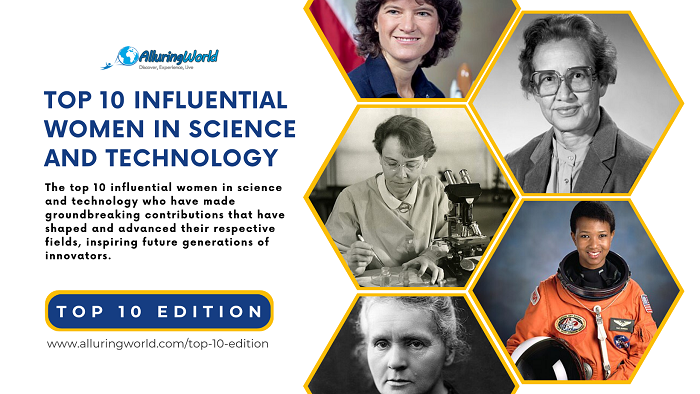Throughout history, women have made significant contributions to the fields of science and technology, despite facing barriers and systemic challenges. These trailblazing individuals have broken barriers, shattered stereotypes, and paved the way for future generations of women in STEM (Science, Technology, Engineering, and Mathematics). Here are ten influential women who have left a lasting impact on the world of science and technology.
- Marie Curie (1867–1934): being a pioneering physicist and chemist, was the first woman to win a Nobel Prize and the only person to win Nobel Prizes in two different scientific fields (Physics and Chemistry). Her groundbreaking research on radioactivity laid the foundation for modern nuclear physics.
- Ada Lovelace (1815–1852): often regarded as the world’s first computer programmer, developed the first algorithm intended to be processed by a machine. Her work on Charles Babbage’s Analytical Engine laid the groundwork for modern computing.
- Rosalind Franklin (1920–1958): a British chemist and X-ray crystallographer, made significant contributions to the understanding of DNA’s molecular structure. Her X-ray diffraction images, including Photo 51, were crucial to the discovery of the DNA double helix.
- Grace Hopper (1906–1992): a pioneering computer scientist and naval officer, was instrumental in the development of early computer programming languages, including COBOL. She is often credited with popularizing the term “debugging” after removing a moth from a computer.
- Katherine Johnson (1918–2020): a mathematician and NASA physicist, played a vital role in the success of the early space missions, including John Glenn’s orbital flight. Her calculations were critical to the trajectory of the spacecraft and the safety of the astronauts.
- Mae Jemison (b. 1956): an engineer, physician, and astronaut, made history as the first African American woman to travel in space aboard the Space Shuttle Endeavour in 1992. She continues to advocate for diversity in STEM fields and inspire future generations.
- Hedy Lamarr (1914–2000): a Hollywood actress and inventor, co-developed frequency-hopping spread spectrum technology, a precursor to modern wireless communication. Her invention laid the foundation for technologies such as Bluetooth and Wi-Fi.
- Barbara McClintock (1902–1992): a pioneering geneticist, made groundbreaking discoveries in the field of genetics, including the discovery of genetic transposition or “jumping genes.” Her research revolutionized the understanding of genetic regulation and earned her the Nobel Prize in Physiology or Medicine in 1983.
- Margaret Hamilton (b. 1936): a computer scientist and systems engineer, led the team that developed the onboard flight software for NASA’s Apollo space missions. Her work was instrumental in the success of the Apollo 11 moon landing in 1969.
- Sally Ride (1951–2012): an astronaut, physicist, and educator, became the first American woman to travel to space aboard the Space Shuttle Challenger in 1983. She broke barriers and inspired generations of women to pursue careers in STEM fields.
These influential women in science and technology have made significant contributions to their respective fields, paving the way for future generations of women in STEM. Their achievements, perseverance, and groundbreaking discoveries have not only advanced scientific knowledge but also challenged stereotypes and expanded opportunities for women in traditionally male-dominated fields. As role models and trailblazers, they continue to inspire and empower individuals around the world to pursue their passions and make meaningful contributions to the world of science and technology.

